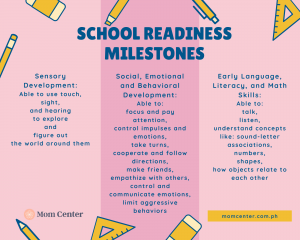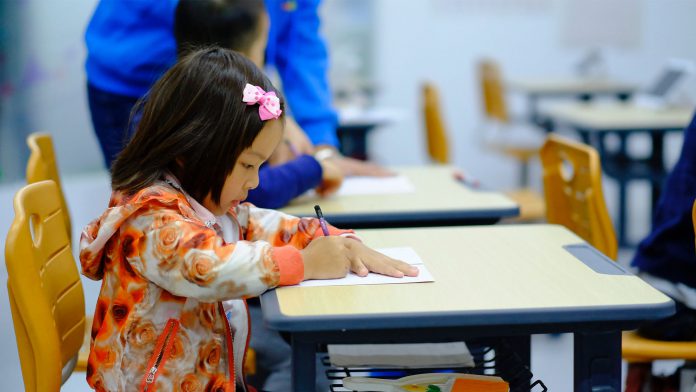Are you considering enrolling your child in a big school next school year? Formal school can be a big step for small kids so it’s a decision that shouldn’t be taken lightly. So if you need help in coming up with a decision, here are a few factors you can consider.
Age
The Department of Education (DepEd) requires children to reach 5 years of age before acceptance to the Kinder level. At the same time, the DepEd only requires one year of Kinder (at 5 years old) for a child to be accepted into Grade 1 (at 6 years old). Anything before the Kinder level — whether it may be referred to as Nursery (Junior or Senior) or Pre-Kinder is optional. However, some private schools require students to complete two Kinder levels before acceptance into their Grade 1 program. At the same time, the DepEd and schools currently strictly implement a birthday cutoff for students:
- Kinder: 5 years old on or before August 31
- Grade 1: 6 years old on or before August 31
You can read more about this on our Kinder primers (1 and 2) and DepEd PR.
School readiness
Aside from your child’s age, perhaps what is more important is gauging his school readiness. School readiness is a general term used in measuring a child’s knowledge, skills, and behaviors that can contribute to his participation and success in a formal school set up. It is more than a child’s ability to read, write, and do basic maths. Rather, school readiness encompasses the development of the whole child — including their social and emotional skills, physical skills, communication skills, and cognitive skills. This is important as children will be able to cope and thrive well in school if they have the skills that are needed to get along with other kids, follow instructions, and even communicate their needs. More importantly, studies have shown that kids who start school when they are developmentally ready tend to do well in school and even prepares them for further success later in life.
So how can you assess your child’s school readiness? Here are a few basic things you should take note of:
Social skill
Your child should be able to interact with other children, demonstrate basic manners, even assert themselves, and be able to play independently and also with other kids.
Emotional maturity
Your child should be able to manage his emotions, cope with minimal adult contact or supervision in large groups, focus on his tasks, follow directions and instructions from teachers, cope with possible stress of the new environment, and understand and follow rules.
Language skills
Your child should be able to talk and listen to both adults and other kids. This includes speaking clearly, communicating his needs, understanding stories or situations, and beginning to identify some letters and sounds.
Cognitive skills
Your child should have basic number skills, basic thinking skills, and be able to wait and take turns.
Physical health and coordination
Your child should be in generally good health. He should also already have a good grasp of fine motor skills — such as gripping a pencil or turning the pages of a book, and physical coordination — including the ability to run, jump, climb, and play ball.
Independence
Your child should have the basic skills to manage their own needs without adult supervision, such as going to the toilet, dressing themselves, or opening their lunch box and managing their own stuff or bag.
To summarize, here’s what you need to look out for in terms of school readiness milestones:

And finally, do keep in mind that every child develops at their own pace and has their strengths, interests, and even temperament when it comes to learning. So try not to worry if your child still doesn’t demonstrate all of the school readiness milestones or skills. If you’re concerned about his development, then it’s best to consult your Pediatrician or Early Childhood Educator for assessment and advice.
References: Learning Potential, Healthy Children
Join our MomCenter Community on our Facebook page and Facebook group for more insights on motherhood and parenting.





